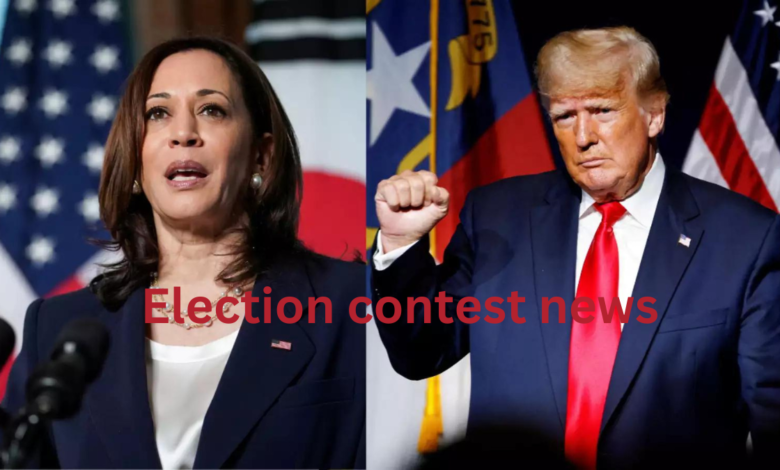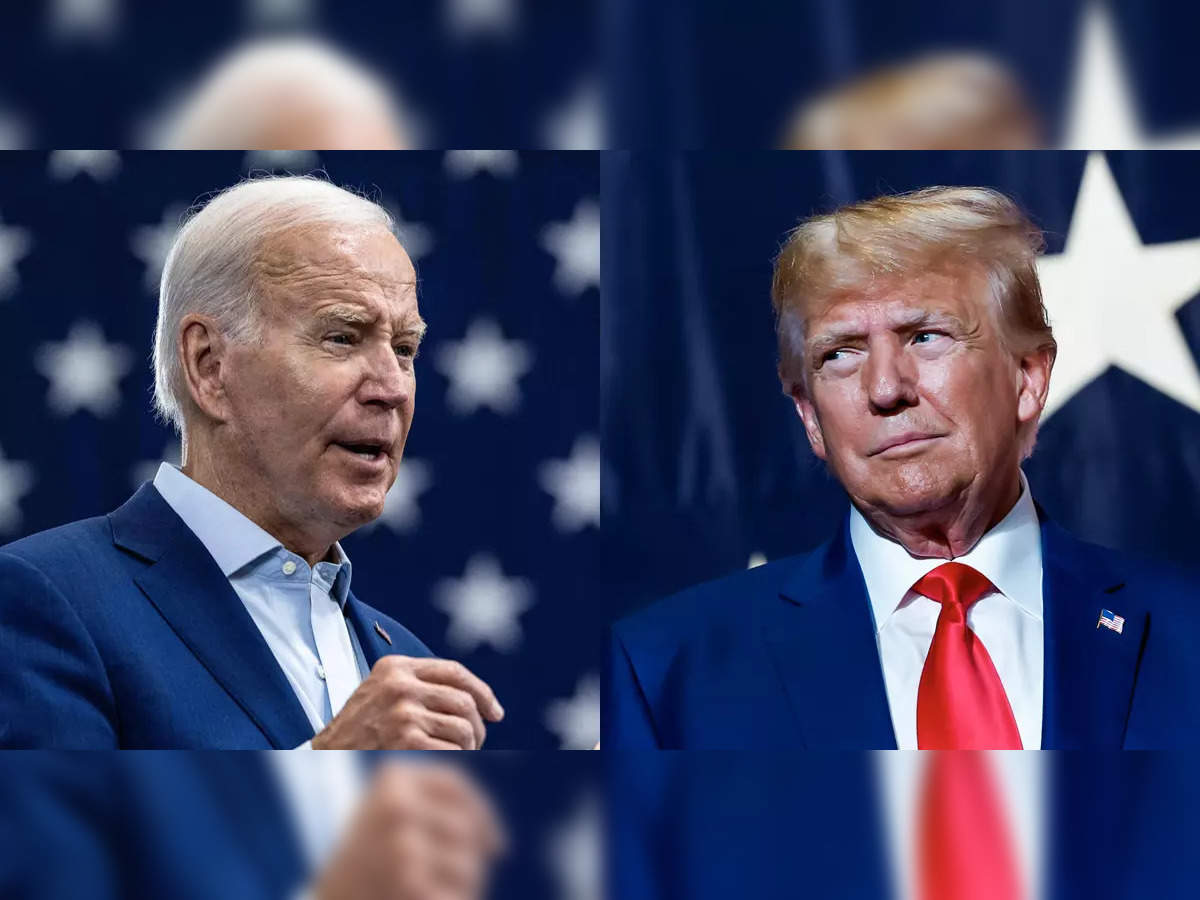Election Contest News: Understanding the Landscape of Political Rivalries

Election contest news has become a crucial component of our daily media consumption, particularly as political landscapes around the globe evolve. With elections driving debates, discussions, and decisions that affect millions, understanding the dynamics of election contests is essential for every citizen. This article explores the intricacies of election contest news, from its importance to its impact on public perception and democracy itself.
The Role of Election Contest News

Election contest news serves as a pivotal medium through which voters engage with the political process. It encompasses a broad spectrum of coverage, including candidate profiles, debates, opinion pieces, and voter turnout statistics. But why is this coverage so significant?
Informing the Public
At its core, election contest news aims to inform the electorate. In a democratic society, an informed voter is crucial to the functioning of democracy. News outlets provide information about candidates’ backgrounds, policies, and platforms, helping voters make educated choices at the polls. Without this information, citizens would struggle to distinguish between the myriad options presented to them.
Moreover, election contest news also highlights key issues affecting voters, such as healthcare, education, and economic policies. By bringing these topics to the forefront, the media encourages discussions that can shape public opinion and influence voter decisions.
Shaping Public Perception
The media’s portrayal of candidates can significantly influence public perception. Election contest news often frames candidates in particular ways—whether as experienced leaders or as inexperienced newcomers. This framing can sway public opinion, impacting voters’ perceptions long before they cast their ballots.
In addition, the tone of election contest news can affect the way candidates are viewed. For instance, positive coverage can enhance a candidate’s image, while negative reports can damage reputation. The power of the media in shaping narratives cannot be underestimated, making it a crucial player in election contests.
Encouraging Civic Engagement
Election contest news plays a vital role in encouraging civic engagement. By covering events such as town halls, debates, and rallies, the media motivates voters to participate in the political process. Engaging stories about grassroots movements and voter initiatives can inspire individuals to become more active in their communities.
Additionally, election contest news often includes information on how to register to vote and where to cast ballots, further facilitating participation. By empowering citizens with knowledge and resources, election contest news fosters a more engaged and informed electorate.
Key Components of Election Contest News
Understanding election contest news requires examining its key components. These elements play a crucial role in shaping the narrative and informing the public.
Candidate Profiles
Candidate profiles are a cornerstone of election contest news. These profiles provide voters with detailed information about who is running, their backgrounds, and their political positions. In-depth profiles often cover a candidate’s previous experience, educational background, and key policy proposals.
Well-crafted candidate profiles not only inform voters but also humanize the candidates. Personal stories, anecdotes, and family backgrounds help create a connection between candidates and voters, making the political landscape feel more relatable. By showcasing candidates as individuals rather than just political figures, the media enhances voter engagement.
Debates and Forums
Debates and forums are another vital aspect of election contest news. These events provide candidates with a platform to present their views and challenge each other on key issues. Media coverage of debates often focuses on performance, rhetoric, and how well candidates address the concerns of voters.
Debates serve as a critical moment in election contests, often influencing public opinion in real-time. News outlets analyze candidates’ performances, highlighting key moments and memorable quotes that resonate with voters. The aftermath of debates can also shift the narrative, impacting polling numbers and campaign strategies.
Polling Data and Analysis
Polling data is a significant element of election contest news, offering insights into voter preferences and trends. Regularly updated polls provide a snapshot of the electoral landscape, helping to gauge public sentiment as elections approach. Media coverage often includes analyses of polling data, exploring what the numbers mean for candidates and their chances of winning.
Polling also invites speculation about election outcomes, fostering discussions about potential strategies and campaign adjustments. However, it’s important to approach polling data critically, as factors like sample size and methodology can influence results. Election contest news should strive to provide context around polling data, empowering voters to understand its significance.
The Impact of Social Media on Election Contest News
In recent years, social media has transformed the landscape of election contest news. Platforms like Twitter, Facebook, and Instagram have become powerful tools for candidates and voters alike, influencing how news is disseminated and consumed.
Instant Communication
Social media enables instant communication between candidates and the electorate. Candidates can share their messages, respond to questions, and engage with voters in real-time. This direct line of communication helps humanize candidates and fosters a sense of transparency.
However, the immediacy of social media also presents challenges. Misinformation can spread rapidly, leading to confusion and misinterpretation of candidates’ positions. Voters must navigate a complex information landscape, requiring critical thinking and media literacy skills.
Amplifying Voices
Social media amplifies diverse voices in election contests. Grassroots movements, marginalized communities, and youth activists can share their perspectives, influencing the broader political conversation. This democratization of information allows for a richer dialogue around important issues.
Election contest news can benefit from highlighting these voices, offering a more comprehensive view of the electoral landscape. Coverage that includes a variety of perspectives encourages inclusivity and helps ensure that all segments of the population feel represented in the political process.
Shaping Campaign Strategies
Candidates increasingly use social media to shape their campaign strategies. Analyzing engagement metrics and public reactions allows campaigns to adapt their messaging in real-time. This responsiveness can be critical in a fast-paced electoral environment.
Election contest news should reflect these dynamics, exploring how social media influences candidates’ strategies and public engagement. By analyzing social media trends, reporters can provide valuable insights into the evolving nature of political campaigns.
Challenges Facing Election Contest News
While election contest news plays a crucial role in the democratic process, it faces several challenges that can impact its effectiveness and integrity.
Misinformation and Fake News
The prevalence of misinformation and fake news poses a significant challenge for election contest news. False narratives can spread rapidly, undermining public trust in the media and distorting voters’ understanding of key issues. Journalists must be vigilant in fact-checking and verifying information before reporting.
Combatting misinformation requires collaboration between media outlets, fact-checking organizations, and social media platforms. By prioritizing accuracy and transparency, the election contest news can help restore public confidence in the information being disseminated.
Media Bias
Media bias is another concern that affects election contest news. News outlets may lean toward particular political ideologies, influencing how they report on candidates and issues. This bias can create echo chambers, where voters only receive information that reinforces their existing beliefs.
To mitigate bias, election contest news should strive for balanced reporting. Presenting multiple perspectives and highlighting diverse voices can enhance the integrity of coverage, fostering a more informed electorate. Encouraging critical thinking among readers is essential for navigating biased information.
Declining Trust in Media
In recent years, trust in media has declined, impacting how election contest news is perceived. Many individuals view news outlets as partisan or unreliable, leading to skepticism about the information being presented. This erosion of trust can hinder public engagement and participation in the democratic process.
To rebuild trust, media organizations must prioritize ethical journalism practices, transparency, and accountability. By engaging with their audiences and fostering open dialogue, news outlets can help restore confidence in the importance of election contest news.
The Future of Election Contest News
As technology and society continue to evolve, so too will election contest news. Understanding emerging trends can provide insights into the future of political reporting and civic engagement.
Enhanced Digital Platforms
The future of election contest news will likely see the rise of enhanced digital platforms. These platforms will provide interactive experiences, allowing users to engage with information in new and innovative ways. For example, virtual town halls and interactive data visualizations can help voters better understand candidates and issues.
As digital literacy improves, voters will increasingly seek out informative and engaging content. Media organizations must adapt to these changes by leveraging technology to create compelling narratives that resonate with audiences.
Increased Focus on Local Elections
While national elections often dominate headlines, there is a growing recognition of the importance of local elections. Local contests directly impact communities, influencing policies related to education, public safety, and infrastructure. Election contest news is likely to place greater emphasis on local races, highlighting candidates and issues that matter most to residents.
By fostering a deeper understanding of local elections, media organizations can empower citizens to engage with their communities and make informed decisions at all levels of government.
The Role of Artificial Intelligence
Artificial intelligence (AI) is poised to play a significant role in the future of election contest news. AI tools can assist journalists in analyzing data, identifying trends, and generating insights that enhance reporting. However, it is essential to balance the use of AI with human judgment to ensure ethical standards and accountability.
As AI becomes more prevalent in the newsroom, ethical considerations must guide its application. Media organizations should prioritize transparency in their use of AI and maintain a commitment to accuracy and fairness in reporting.
Conclusion: The Importance of Election Contest News
In conclusion, election contest news is an indispensable component of a functioning democracy. By informing the public, shaping perceptions, and encouraging civic engagement, it empowers citizens to participate meaningfully in the political process. While challenges such as misinformation and media bias persist, the future of election contest news holds promise with advancements in technology and a renewed focus on community engagement.
As we navigate the complexities of the political landscape, it is essential to remain informed and engaged. By prioritizing accurate and inclusive election contest news, we can foster a more informed electorate and contribute to a healthier democratic process. Whether through traditional media, social media, or community initiatives, every citizen has a role to play in shaping the future of our democracy.
